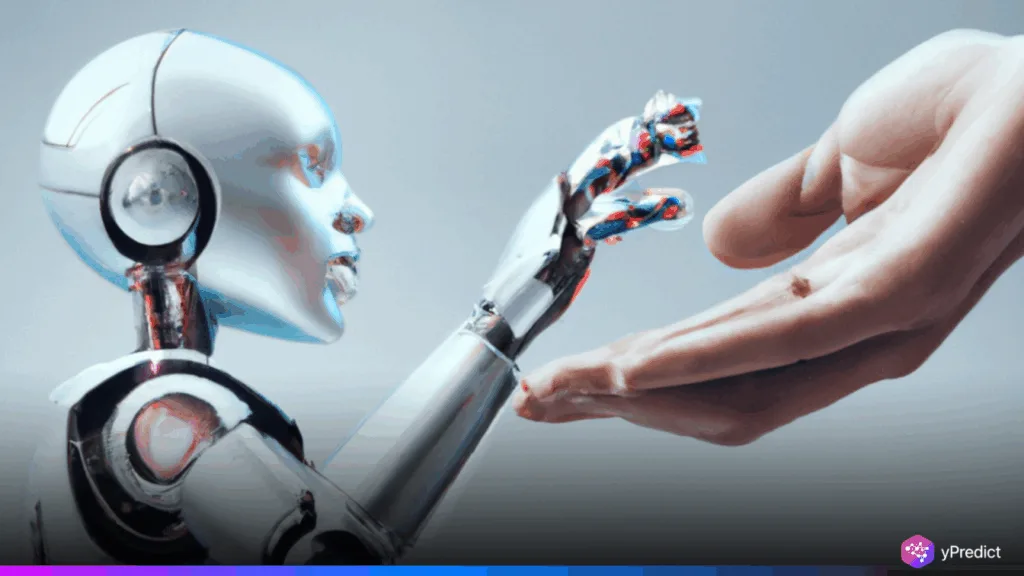
A recent discussion by Rahul Mathur highlighted insights from Eoghan McCabe, CEO and co-founder of Intercom, on a paradox shaping the AI industry. Despite AI’s superior consistency, scalability, and efficiency, humans often assign more value to services performed by other humans. McCabe’s reflections stem from Intercom’s evolution into an AI-first company with its intelligent support agent, Finn, designed to shift from a traditional SaaS model to an outcomes-based platform. Finn’s impressive growth trajectory, from zero to $12 million ARR in its first year and aiming for $100 million soon, showcases AI’s business potential while raising vital questions about how humans perceive value.
The Human Premium in an AI-Driven World
The main idea of McCabe is that the human component still dominates the perception of value despite the fact that AI systems perform unexpectedly well, like Intercom Finn. Although AI provides a solution to scale queries and ensure their availability and consistent quality, humans still tend to appreciate the art of craft, emotional appeal, and human narratives. This bias shows a differentiation between economic efficacy and emotional intimacy, at which Homo sapiens has a split with the purely economic Homo economicus. For Intercom, this perspective was pivotal in setting Finn’s pricing strategy.
Though a human resolution could cost as much as $25, and an AI equivalent was initially estimated at $2.50, Finn launched at just $0.99 per resolution. Remarkably, despite this being below its own early per-resolution costs, the decision lowered barriers for adoption and spurred loyalty. Intercom has since witnessed strong engagement, with resolution rates climbing beyond 70% for some accounts and a staggering 400% net revenue retention. These metrics suggest that psychological acceptance and pricing accessibility may matter as much as technological efficiency. By aligning its approach with human tendencies rather than abstract models, Intercom positioned Finn for exponential growth while reframing how AI solutions should connect with global markets.
AI Economics and the Jevons Paradox
The interplay of psychology and economics informs much of Intercom’s trajectory with Finn. McCabe’s pricing choices reflect the 19th-century Jevons Paradox, which posits that efficiency gains often lead to greater demand. By making high-quality AI resolution accessible at under a dollar, Intercom created conditions for wider adoption and deeper integration across industries. This strategic move not only expanded Finn’s market footprint but also encouraged organizations to trust AI for more complex workflows. Importantly, the $1 million performance guarantee, if under 65% resolution success, further reassured clients, accelerating growth in financial services, healthcare IT, and beyond.
Broader industry analysis suggests that AI pricing will shift from value-based models, which benchmark against human productivity, toward cost-plus models tied to GPU and inference expenses. This mirrors the journey of global IT outsourcing, including India’s vibrant sector, where margins compressed over time but overall capacity multiplied. While Intercom’s innovations highlight shrinking margins as a likely reality, they also prove how scaling demand can fuel billion-dollar opportunities. By consistently improving Finn’s resolution rates, jumping from 56% in May 2025 to over 70% in June, Intercom demonstrated how efficiency combined with pricing discipline can reshape customer expectations, unlocking vast growth potential despite declining per-unit profitability.
Lessons for AI Builders
The case of Intercom with Finn translates what companies can do to succeed in an age of margin squeezes and value shifts of value. The observations of McCabe indicate that technology is not the only factor that can help a company conquer the market; it is also essential to understand people and be able to adopt economic principles. The price affordability, the promise of performance, and the desire to create trust allowed the establishment of potential drawbacks as the advantages of the company. Rahul Mathur’s analysis underscores that AI founders must expect thinner margins, embrace scalability, and innovate to unlock novel workflows. Ultimately, Intercom’s success provides a blueprint for AI builders seeking sustainable impact in a future where efficiency and human preference must coexist.






